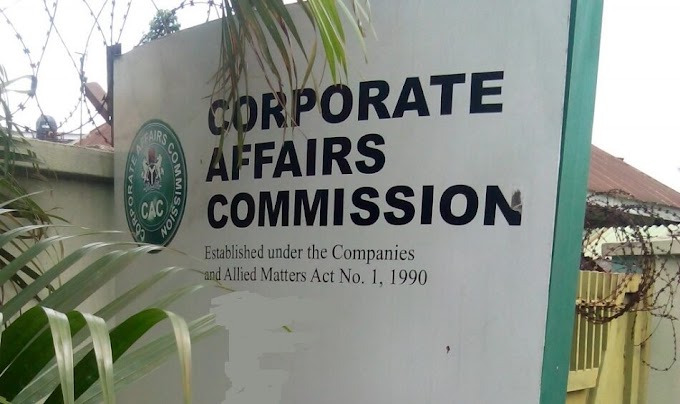One of the most important ways to start your business enterprise is
by registering your business entity. Unconvinced? In this post, I will
highlight several reasons you should register your business entity at the early
stage.
Availability
2 years ago, you started your own business. Formulated a perfect
name for the business. Designed a beautiful logo for it.
Business was booming, your customer base was growing, the sky was
the limit. Then, for whatever reason, you realised you needed to register the
business. You therefore filed an application for business registration with the
Corporate Affairs Commission (CAC). 24 hours later, you received a notice of
denial from CAC. The name you painstakingly built your business around, for 2
solid years, would not be available for registration.
How would you feel? Sad and devastated, right?
One of my clients, a logistic company promoter, felt the same way.
He was forced to modify the business name.
It is just unwise to build your business around a name which is not legally
recognised as yours.
Legal Protection
Your business name becomes yours upon successful registration with
the CAC. Your business is recognised by law to be existing. Your registered
business name or a name similar to it cannot be registered by another business
entity in Nigeria any longer.
Compliance
As a sole proprietorship, partnership, or company, if you carry on an
unregistered business which is required by law to be registered in Nigeria,
your default to register the business within 28 days after commencing business
operations amounts to an offence. You may also be liable on conviction to a
fine for every day during which the default continues.
Improved Access to Finance, Markets and Networks
Certificate of business registration is one of the common
requirements for getting business loan from lenders, according to Lendigo
Nigeria, a fintech company that provides loans and financing opportunities for
SMEs. “If your business is not registered, you might want to consider getting a
personal loan for your business or getting it registered,” Lendigo writes.
A registered business entity gives you better access to financing
your business through investors, financial institutions, government schemes,
among other financing opportunities.
Branding and Legitimacy
Branding is about controlling people’s perceptions of your business.
You want your potential customers or clients to see you as someone they can
trust, someone serious with their business, and someone legitimate.
“To prove that you have a legitimate business, legally operating in
Nigeria, you will be required to provide proof of business registration,”
Lendigo notes. “For a Nigeria-based business, this proof is your business
registration certificate (BN or RC).”
A registered business helps in building reputation with your
suppliers, customers, and employees. And when you enter business with big
corporations, you want them to easily find you if they decide to conduct
background check on you and your business with the CAC. It is good for the
business.
Business Bank Account
Providing your business bank account details as a means of receiving
payment from a customer or client, instead of your personal bank account
details, shows professionalism, credibility, and diligence.
A business bank account, separate from your personal bank account,
makes it easier for you to separate your personal financial activities from
those of your business. And to open a business bank account with any bank in
Nigeria, certificate of business registration is a prerequisite.
Liability
When you register your business as a company, it means you are only
liable to the number of shares or guarantee you hold in the company.
This benefit flows from the principle of corporate personality.
Corporate personality means that upon successful registration of your company,
you create another “person” under the law. This person, your company, will be
responsible for its own activities: it can employ its management; it can own
properties; it can sue and be sued. Your only liability to the company is the
amount you undertake to contribute to the company in the event of its
insolvency or death.
Thus, your undertaking is the number of shares or guarantee you own
in the company during the registration process or later. And when creditors come
for the company and the company is unable to pay its debt, you will only be
liable for the number of shares or guarantee you own in the company. You and
your personal properties are safe.
Continuity
The Coca-Cola Company was incorporated in 1892 by Asa Griggs Candler.
Mr. Candler died in 1929. Over 100 years later, the company continues to exist.
Continuity. Perpetual succession. This benefit flows from the same
principle of corporate personality.
While you are susceptible to death as a human being, your company as
an artificial person can be in existence for years with proper management and
structure in place.
A registered company is a legacy your children can inherit. You can
run your family business through it, just like the fictional Shelby Company
Limited through which the Shelbys run their family business in Peaky Blinders, one
of my favourite TV series.
And for generations to come, the family business continues to grow
and expand through the registered company.
READ ALSO: THE ART OF NAMING YOUR BUSINESS: LESSONS FROM AMAZON, NETFLIX AND APPLE
There are many more advantages of registering your business entity,
including the ease of obtaining visa and travel to any country for business purposes;
applying for licences in your business sector or industry; among others. If you
carry on an unregistered business right now, take a pause from other business
activities and get your business registered, so that you can access all these
benefits and save your business from future troubles.






Let's Get Connected